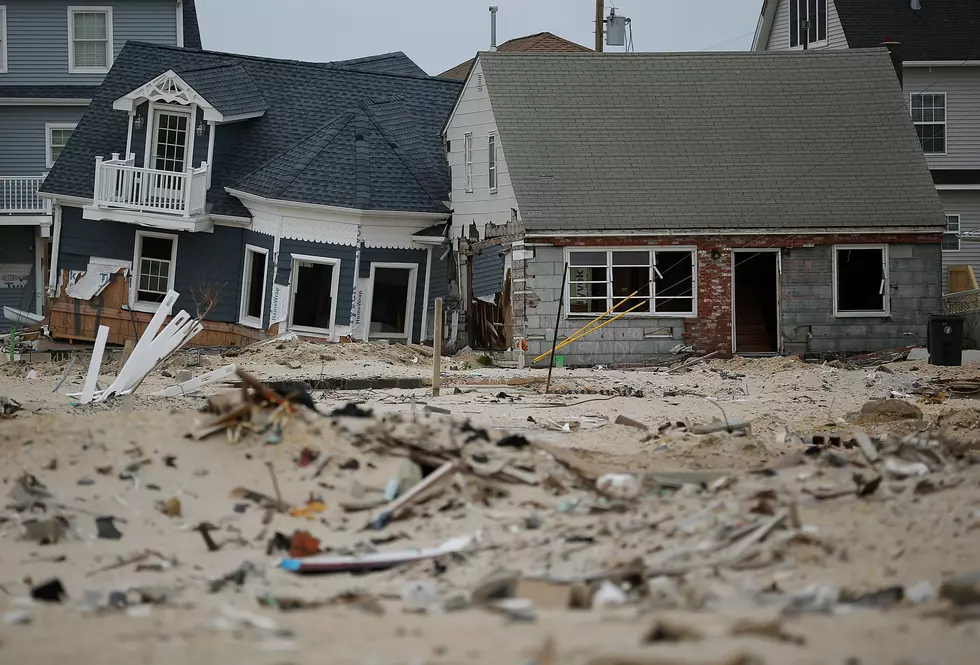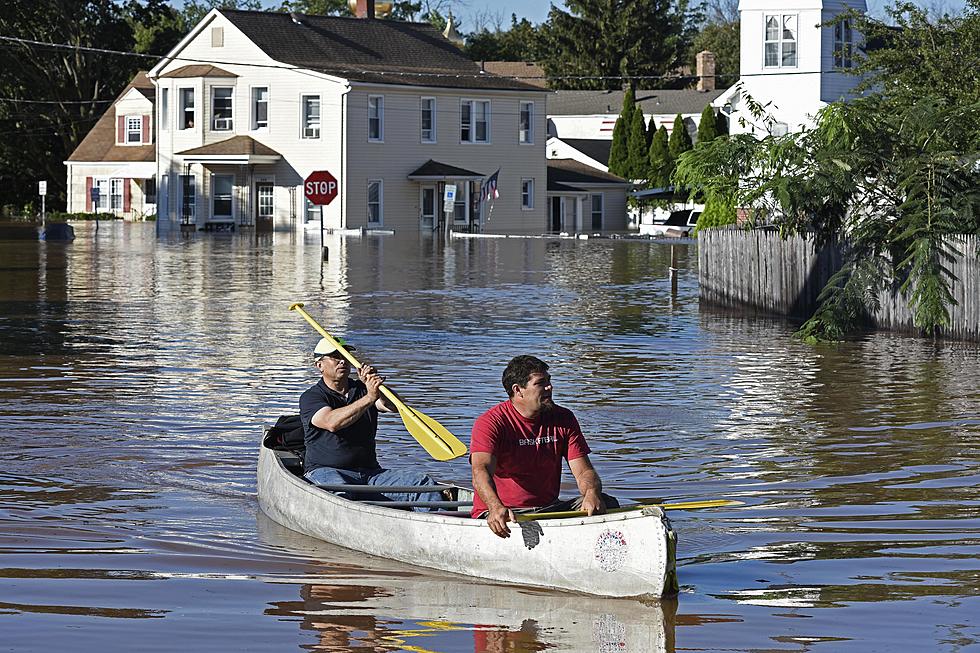NJ to Fund Demo of Sandy-Damaged Homes [AUDIO]
Homes that were damaged beyond repair by Superstorm Sandy are being targeted as part of a $15 million program administered through the Department of Community Affairs.
The program, which is funded by the federal Community Development Block Grant, provides money to nine of New Jersey's most heavily affected counties, in order for communities to demolish the structures, remove debris and do any other necessary demolition-related activities.
To date Brick, Eagleswood, Keansburg, Lavallette, Little Egg Harbor, Point Pleasant, Point Pleasant Beach, Seaside Heights, Seaside Park, Spring Lake Heights, Stafford, Toms River, Tuckerton and Union Beach have provided the DCA with preliminary lists of damaged buildings.
Even almost two years after the storm hit, many communities still have long lists of homes in need of demolition.
In Union Beach, 272 homes were demolished with volunteer labor immediately after the storm, but 94 more homes need to be torn down, according to borough administrator Jennifer Maier.
"Since we had 1,800 of our 2,400 homes flooded, many of our homes were shifted off their foundations and it would be cost-prohibitive to try and repair," Maier said.
Additionally, many communities are tasked with figuring out how many homes still need to be demolished, which remains a growing number in some of those towns.
"Me personally, I get around five emails a day about properties that code enforcement needs to take a look at," said John Ducey, mayor of Brick Township.
In an interview with the Asbury Park Press, Lisa Ryan, director of Strategic Communications for the DCA, said code enforcement officials have been dispatched to storm-ravaged communities to identify homes damaged by Sandy which need to be demolished.
"When these structures are identified, a notice will be served on the property owner, who can then accept or reject the enforcement official's determination," the article states. "Property owners who challenge an unsafe structure determination have the right to apply to the DCA for a hearing and the right to challenge the determination in state court. If residents do not challenge the determination, the state must still get the approval of the resident."
The demolitions are especially necessary in Union Beach, where Maier said most of the homes are older, bungalow-style structures which weren't built to the latest safety standards and are physically impossible to elevate to FEMA guidelines.
"Very often, the floor framing is not adequate or the structure itself isn't strong enough to be elevated," Maier said.
More From 105.7 The Hawk










